
If you have recently yelled at your child, you are not alone. Work from home or stay home notices might mean more tension when your child wants your constant attention. We speak to Jacinth from Our Little Playnest who gives her advice regarding positive parenting, staying calm and managing emotional outbursts.
Little Day Out: Tell us more about yourself, your family and Our Little Playnest.
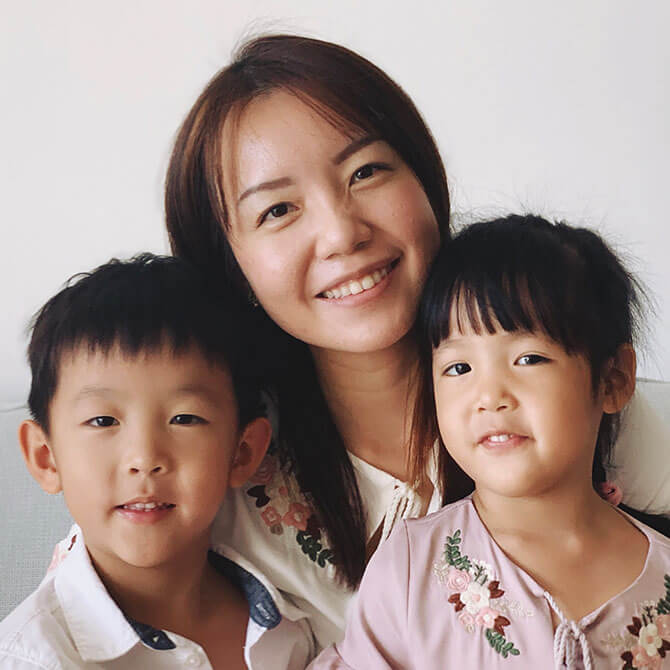
“You can take the teacher out of the classroom, but you can’t take the classroom out of the teacher.”
I am very passionate about teaching and educating children, so I made Daryl my student instead! Since he was born, I’ve been reading to him, playing and educating him at every teachable moment. I started @ourlittleplaynest on Instagram to document our play journey. A few years down the road, the Instagram account has become a platform for me to champion the value of play, and teach parents brain based positive parenting strategies so that they can connect with their children, emotion-coach their little ones, and enjoy parenthood. I feel a great sense of fulfilment as I hear stories from my workshop students who managed to yell less and navigate parenthood with confidence!
GIVEAWAY: Stand to Win Family Tickets to ZOOOM by Patch Theatre Worth $200
3 Recycling Adventures: Fun Ideas For Kids & Families
1:1 & Small Group English Lessons: How to Get Personalised, English Help
What do you think parents in Singapore need to do more of?
We need to pause and enjoy our children for who they are. We are often too fixated in getting our children to behave, that we forget to look at our kids in their eyes, laugh with them, hug them, spend quality time with them without our phones.
As an experienced educator and parent, what are some challenges that are hardest to overcome in parenting?
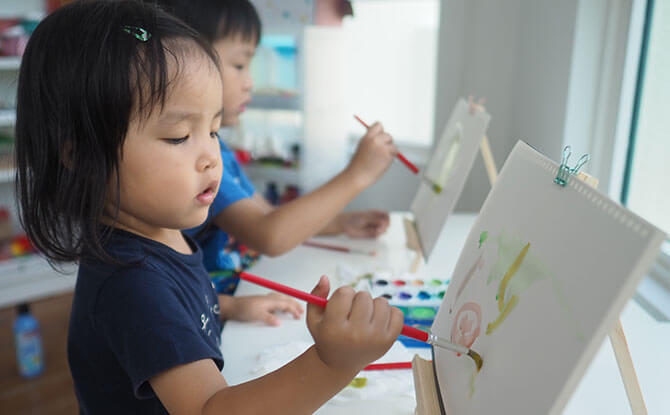
Our children’s behaviours don’t frustrate us, it’s our expectations of them that drives us up the wall. And when children don’t meet our expectations of them, we lash out at them.
However, more often than not, these expectations are unrealistic:
We expect children to control their emotions or stop crying when they feel upset or angry, but we adults are the ones yelling at them, throwing the adult tantrum.
We expect children to play well with other children but the empathy part of the brain is not well developed for little kids, so they simply can’t share.
We expect children to listen to everything we say, but children naturally learn by testing boundaries to build their brains.
So the hardest part is really to control our own emotions, not to yell, spank, blame or shame our children when they don’t meet our unrealistic expectations. Instead, we should change our perspective, remember that they are still children. We should connect with them, coach them and help them to learn!
What do you consider to be positive parenting?
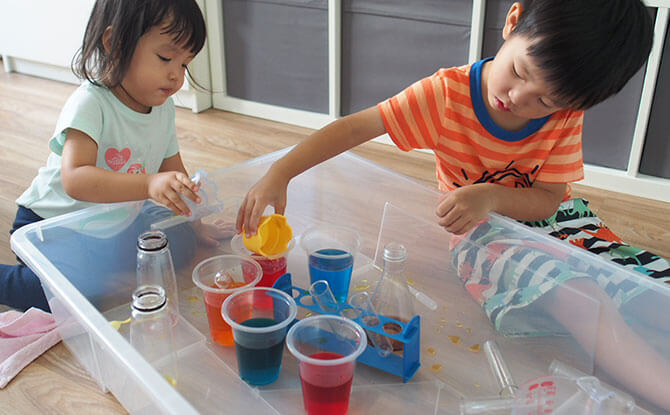
It is about teaching, not punishing.
Any tips for parents, like myself, struggling to stay calm?
Always pause before you respond to your children if you are quick tempered. We often feel the need to correct our children, make decisions for them instead of listening to them. When you feel triggered, just pause and stop talking. That moment when you stop, can help you avoid knee jerk reactions or any actions that you might regret later on.
Then BREATHE to bring oxygen to your prefrontal cortex so you can access your logical brain and respond calmly instead of reacting with rage.
Let’s talk about tantrums. What is the most effective way to deal with tantrums?
Tantrums are children’s way of expressing their big feelings and unmet needs. They are sending us a message: help me!
The best way to deal with tantrums is to connect with your children, attune to their needs, and empower them to solve the problem within boundaries.
I share with my students and followers a 5-step approach to turn tantrums into a teachable moment:
Step 1: Breathe, breathe, breathe.
Step 2: Tell yourself a mantra e.g. “My child needs help with his emotions.” or “My child is not giving me a hard time; he is having a hard time.”
Step 3: Validate your child’s emotions with words e.g. “You are angry because you cannot use the blue cup. Blue is your favourite colour and you hope to use it to drink the water.”
Step 4: Ask your child “Do you need a hug?” Hugging calms your child and brings him out of the fight or flight mode.
When your child has calmed down,
Step 5: Set boundaries and give him age-appropriate choices.
“You like the blue cup but we only have red and orange ones here. You can use the blue cup when its available the next time, I promise. For now, do you want the red or orange cup to fill up the delicious juice?”
If he refuses to choose either of them: “You don’t want to choose the red or orange cup. It is ok. I will give you time. You can decide when you have made up your mind. I will be here for you.”
When can we expect to see less of the tantrums? And how can we encourage other caregivers (e.g. grandparents, helpers) to deal with them positively?
When children throw tantrums, they are communicating, not manipulating.
They lack the ability to use the right words or express their emotions, hence they cry, roll on the floor or become violent.
Little children NEED these tantrums to learn about emotional regulation, how to cope with disappointments and release their emotional baggage. In fact, if they keep these emotions in them, it might cause anxiety or depression issues as they grow up.
So while we allow their feelings to run the full course, we also want to role model and teach them the words to use and ways to calm down. Eventually, as the children master the skills of regulating their emotions, we will see fewer tantrums as they grow older and can use words to express themselves coherently.
For grandparents who were brought up differently, it is a challenge to get them to change their parenting style. Action speaks louder than words; it will help if we can show them how we connect with our children with compassion and give our children age-appropriate choices within boundaries. When grandparents see that the underlying issues can be addressed without yelling, they are more likely to trust your parenting beliefs.
To encourage other caregivers, you can send them articles or pages of books that advocate positive parenting strategies, or teach them the words to use when responding to a child.
In My Heart: A Book of Feelings by Jo Witek
The Color Monster: A Story About Emotions by Anna Llenas
The Rabbit Listened by Cori Doerrfeld
Are there resources you use at home to help your children calm down?
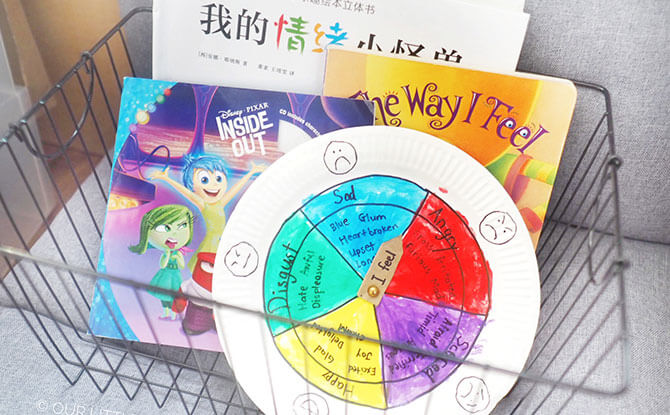
After dropping the kids off in school, I have my breakfast and read a book. This moment of peace helps set the tone for the rest of the day. I fill up my own needs so that I can be present with the kids when they return from school.
I exercise once a week, though I do hope to work out more!
Any advice for mothers transitioning to a SAHM role?
Have a chat with your husbands, set clear expectations, and make sure you both know your roles in the family. Let your husbands know that you are still working at home, in fact you might be working harder with little rest, no off-days and managing the children 24/7. Seek your husband’s understanding, get them to take over whenever they can. Talk about financial planning in the family, prioritise the spendings on essential items, set a budget for non-essential items e.g. travel, clothes, expensive toys.
In addition, there has to be a mindset shift when you become a SAHM. You may have lost your job, income, personal time and space, but you have gained so much more! More time to show up for your children, more control over how you want to parent them, and more opportunities to guide and nurture their developing minds!
Just like how we have to wear our own oxygen masks before helping our children put on theirs, it is extremely important to find ways to maintain sanity as SAHM. Schedule me-time, pursue your hobby or passion, don’t be afraid to ask for help. Do not compare yourself to other parents on social media, do not think that you need to create plenty of activities for your children. Your children only need you to be present, involve them in household chores, read together, play together. It is a privilege to be able to spend time building a strong foundation and getting your children to feel rooted to the family. Look past the mess, enjoy the moments! Strive for progression, not perfection!
Parenting Journey
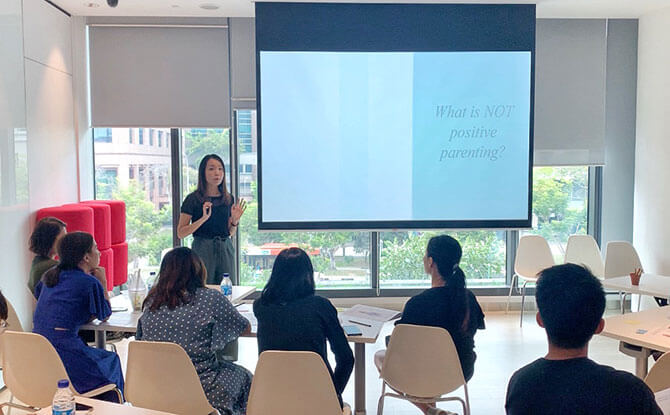
To glean more from Jacinth’s parenting journey, follow her on Instagram and her website where she posts precious advice from a parent to other parents.
READ: 3 Minute Montessori – Mummy Jasmine on the Montessori Approach










![36 Best Museums For Kids In Singapore: A Curated List For Curious Explorers [Updated 2025] 30+ Best Museums For Kids In Singapore: A Curated List For Curious Explorers](https://www.littledayout.com/wp-content/uploads/08-childrens-museum-singapore-218x150.jpg)





